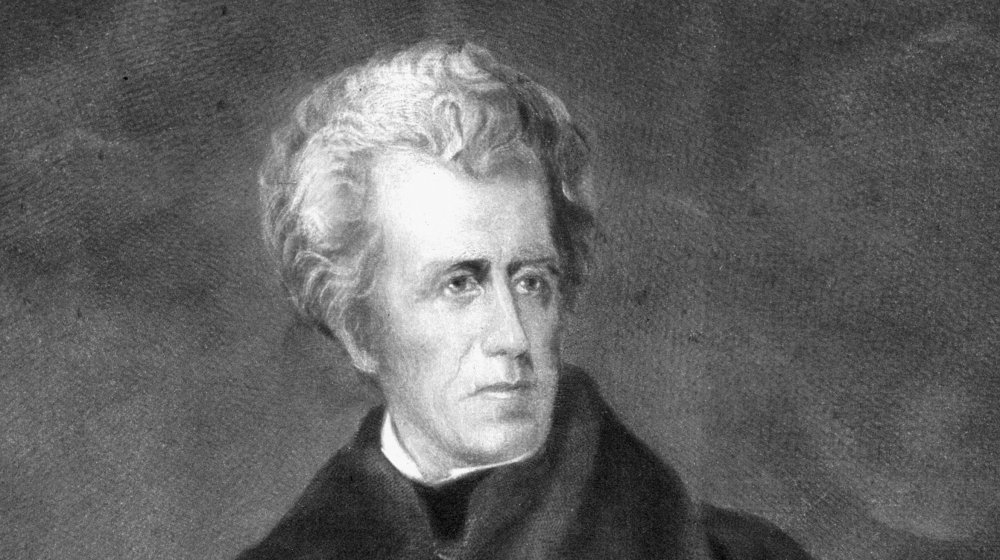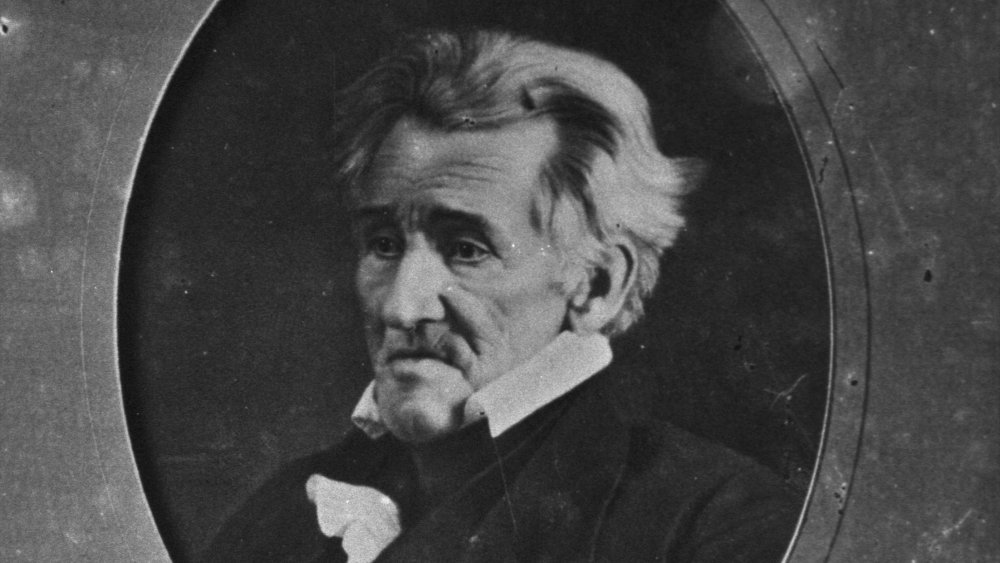The Strange Truth Of Andrew Jackson's Burial
In June of 1845, Andrew Jackson was 78 years old — roughly 248 in 19th century years. He wore his experience on his phlegm-soaked sleeve, suffering from malaria, a bullet lodged in his torso from one of two duels where he took a slug for the team, and that Dickensian world-weariness that comes from nigh-on eight decades of being probably the most ill-tempered man on the planet. Photographs from around this time show a man inclined, if not solemnly sworn, to steal Christmas.
By this point, Jackson was eight years removed from the presidency, but his followers had never abandoned their fanatical devotion to Old Hickory. Case in point, the Smithsonian reports that Commodore Jesse D. Elliott, an old colleague of Jackson's, returned from a tour of the Mediterranean with a gift for the retired statesman. It was the kind of present that doesn't track so much these days – a sarcophagus — but who knows? Maybe people were into this sort of thing back then. More specifically, somebody else's sarcophagus. He'd purchased it so that Andrew Jackson could be buried in it.
He could've paid for his funeral with his face and gotten change back
The new-to-you coffin had previously belonged to an ancient Roman leader Alexander Severus, and the thing was, you know, a little extra. It had rosettes and cherubs engraved all over it. Elliott reportedly thought that the over-the-top fancy-pantsery would make the sarcophagus a tourist attraction, or even a shrine to his very favorite president.
All of that effort would wind up being wasted, as Jackson, true to form as the platonic ideal of a Victorian era literary curmudgeon, waved off the gift and donated it to the Smithsonian. Telling his family that he wished "to be buried in a plain, unostentatious manner," Jackson died on June 8th, 1845, and was dropped into the ground in a pine box, hammering home his belief that he was a man of the people.
Of the snubbing, Commodore Jesse Elliott wrote "We cannot but honor the sentiments which have ruled his judgement in this case, for they are such as much add to the lustre of his character." Also, Andrew Jackson used to put out bounties on his runaway slaves and has been described by historians as the "most aggressive enemy of the Indians in early American history." There just aren't a lot of happy endings, historically speaking.

